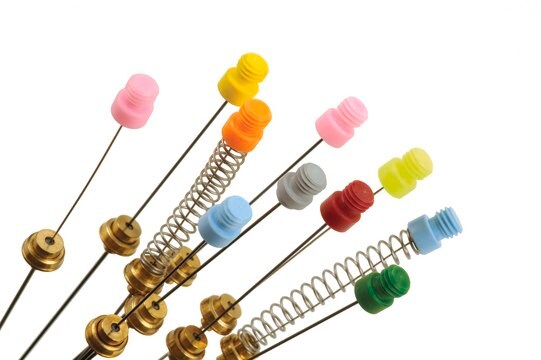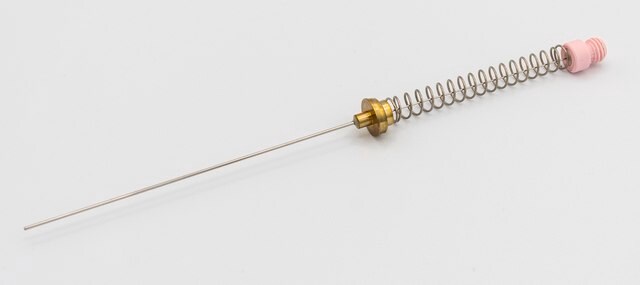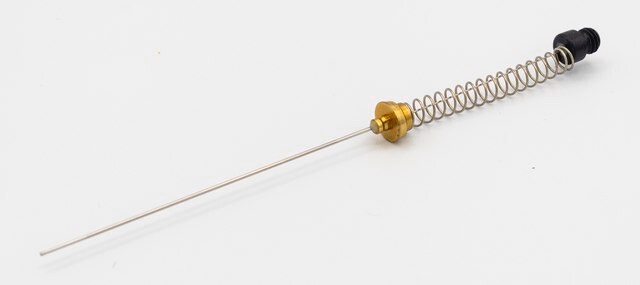57310-U
SPME Fiber Assembly
PDMS/DVB, for use with manual holder, Nitinol-core (NIT), 24 ga, 65 μm (PDMS/DVB)
Synonym(s):
SPME FIBER PK3(MANUAL),W/65UM PS-DVB COATING
About This Item
Recommended Products
Product Name
SPME Fiber Assembly Polydimethylsiloxane/Divinylbenzene (PDMS/DVB), df 65 μm(PDMS/DVB, needle size 24 ga, for use with manual holder
material
fused silica fiber
plain blue hub
Quality Level
needle size
24 ga
packaging
pkg of 3 ea
greener alternative product characteristics
Waste Prevention
Safer Solvents and Auxiliaries
Learn more about the Principles of Green Chemistry.
sustainability
Greener Alternative Product
df
65 μm (PDMS/DVB)
technique(s)
solid phase microextraction (SPME): suitable
fiber L
1 cm
matrix active group
PDMS/DVB coating
application(s)
food and beverages
compatibility
for analyte group volatiles, amines, and nitroaromatic compounds (MW 50-300)
for use with manual holder
greener alternative category
, Aligned
Looking for similar products? Visit Product Comparison Guide
General description
Application
Footnote
Storage Class Code
11 - Combustible Solids
WGK
WGK 2
Choose from one of the most recent versions:
Certificates of Analysis (COA)
Sorry, we don't have COAs for this product available online at this time.
If you need assistance, please contact Customer Support.
Already Own This Product?
Find documentation for the products that you have recently purchased in the Document Library.
Customers Also Viewed
Related Content
Solid phase microextraction (SPME) is a solvent-free sample preparation technique that uses coated fibers to extract analytes of interest from a sample before analysis by GC or HPLC.
Solid phase microextraction (SPME) is a solvent-free sample preparation technique that uses coated fibers to extract analytes of interest from a sample before analysis by GC or HPLC.
Solid phase microextraction (SPME) is a solvent-free sample preparation technique that uses coated fibers to extract analytes of interest from a sample before analysis by GC or HPLC.
Solid phase microextraction (SPME) is a solvent-free sample preparation technique that uses coated fibers to extract analytes of interest from a sample before analysis by GC or HPLC.
Chromatograms
suitable for GC, application for SPMEsuitable for GC, application for SPMEsuitable for GC, application for SPMEsuitable for GC, application for SPMEShow MoreOur team of scientists has experience in all areas of research including Life Science, Material Science, Chemical Synthesis, Chromatography, Analytical and many others.
Contact Technical Service







